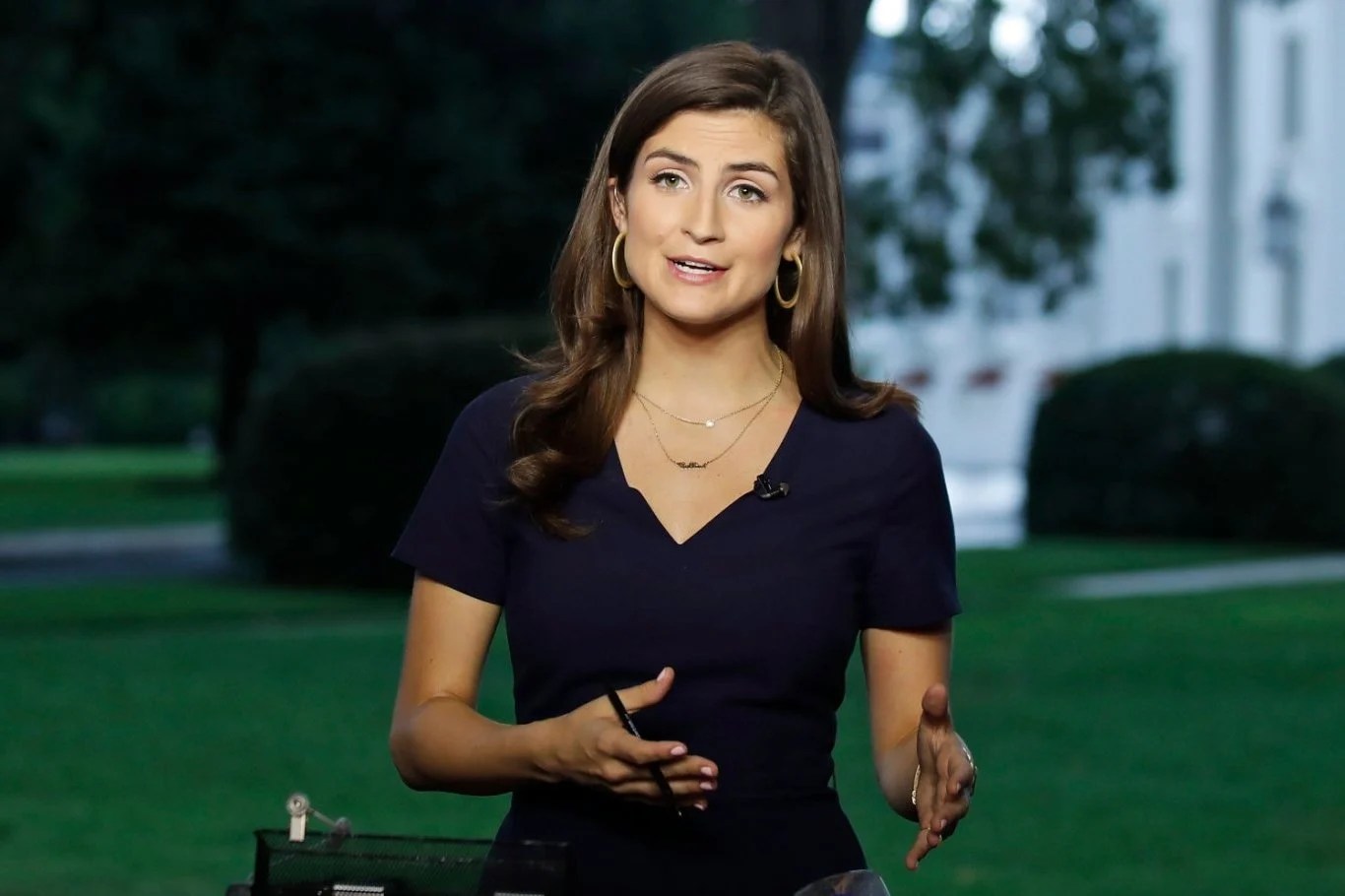Kaitlan Collins: The Unexpected Turn In Her Career
In the fast-paced world of journalism, where every move is scrutinized and every word is weighed, Kaitlan Collins has been a prominent figure known for her tenacity and insightful reporting. However, the recent news of Kaitlan Collins being fired has sent shockwaves through the media landscape, leaving her fans and colleagues in disbelief. As a rising star in political journalism, her sudden departure raises questions about the dynamics of the news industry and the pressures faced by reporters today.
The announcement of Kaitlan Collins being fired appears to stem from a series of events that have put her in the spotlight for both her reporting style and the political climate she navigates. With a career that has seen her rise through the ranks, Collins has not only covered high-profile events but has also become a voice for many young journalists aspiring to make their mark. The implications of her firing could ripple through the media industry, potentially influencing how news organizations operate and how journalists approach their work.
As we delve deeper into the story of Kaitlan Collins, we will explore her journey, the impact of her firing, and what it means for the future of political journalism. From her early beginnings to her rise as a sought-after correspondent, Collins has shaped the narrative of political reporting. But what does her departure signify for the industry at large? Let's unpack the details surrounding this unexpected turn in her career.
Who is Kaitlan Collins?
Kaitlan Collins is an American journalist known for her work as a White House correspondent and her role in political reporting. With a reputation for asking tough questions and holding power accountable, Collins has garnered respect from both her peers and viewers. Here’s a brief overview of her background and career:
| Personal Details | Bio Data |
|---|---|
| Name | Kaitlan Collins |
| Birth Date | April 7, 1992 |
| Education | University of Alabama (Bachelor's degree in Political Science) |
| Career Start | 2014 (as a reporter for The Daily Caller) |
| Current Position | White House Correspondent for CNN |
| Notable Work | Coverage of the Trump administration and the Biden transition |
What Led to Kaitlan Collins Being Fired?
The news of Kaitlan Collins being fired raises several questions about the circumstances that contributed to this decision. Speculation has arisen around potential conflicts with management, editorial disagreements, or perhaps the pressures of reporting in a highly polarized political environment. Understanding the context of her firing is crucial in evaluating its implications.
Were There Warning Signs Prior to Her Firing?
Before the announcement of her firing, there were indications that Collins had faced challenges in her role. Some of the warning signs included:
- Increased scrutiny of her reporting style.
- Public disagreements with political figures.
- Rumors of tension with network executives.
These factors may have contributed to a precarious work environment, potentially leading to the decision to part ways with Collins.
How Has the Media Responded to Kaitlan Collins Being Fired?
The media's response to the news of Kaitlan Collins being fired has been overwhelmingly supportive of her work. Many journalists and commentators have taken to social media to express their disappointment and solidarity with Collins. Her peers have highlighted her dedication to journalism and her ability to ask the tough questions that need to be answered.
What Does the Future Hold for Kaitlan Collins?
After the news of Kaitlan Collins being fired, many are left wondering what her next steps will be. Given her talent and experience, Collins is likely to find new opportunities within the media landscape. Potential paths for her career could include:
- Joining a different news organization as a leading correspondent.
- Launching her own podcast or media platform focused on political discourse.
- Writing a book about her experiences covering the White House.
Could This Incident Change the Landscape of Political Journalism?
The firing of a prominent journalist like Kaitlan Collins could have broader implications for political journalism. It raises essential questions about the treatment of journalists in the current climate, particularly those covering contentious political issues. The incident may prompt discussions about:
- The need for increased support for journalists facing backlash.
- How news organizations handle internal conflicts and editorial decisions.
- The importance of protecting journalistic integrity in a polarized environment.
What Lessons Can Be Learned from Kaitlan Collins’ Experience?
As the dust settles following Kaitlan Collins being fired, there are valuable lessons to be gleaned from her experience. Future journalists can take away the following insights:
- The significance of resilience in the face of adversity.
- The importance of maintaining journalistic integrity, even under pressure.
- The necessity for supportive environments within news organizations.
Conclusion: The End of One Chapter, The Beginning of Another
The firing of Kaitlan Collins marks the end of a significant chapter in her career, but it also opens the door to new opportunities and challenges. As she navigates her next steps, the media landscape will undoubtedly be watching closely. Collins' journey illustrates the complexities of modern journalism and serves as a reminder of the importance of advocating for the rights and well-being of journalists in an ever-evolving industry.
Article Recommendations
- Does Tulsi Gabbard Have Children
- Gabe Kapler Current Girlfriend
- Vedang Raina Parents
- Jay Z On Beyonce
- Jameliz S
- Zin Manga
- Ken Burns Bio
- Jane Fonda Short Haircut
- Bobbye Brooks Oliver
- Jennifer Carpenter


